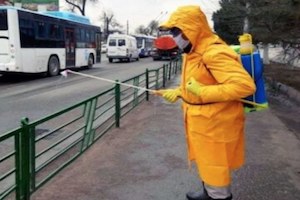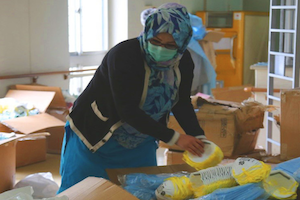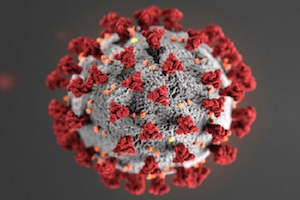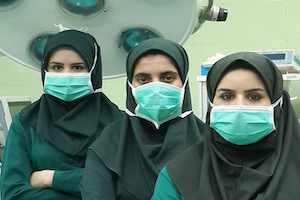Post-COVID-19: Challenges and Opportunities for Central Asia
By Bakhrom Radjabov
June 4, 2020, the CACI Analyst
Since January, COVID-19 (coronavirus) has reached the level of a global pandemic. At first, some Central Asian republics seemed to be virus-free islands with zero confirmed infection cases. Afghanistan confirmed its first COVID-19 case on February 24, followed by a closure of the borders with other Central Asian republics. Kazakhstan discovered its first cases of COVID-19 on March 13, and Uzbekistan on March 15. Kyrgyzstan confirmed its first case on March 18 whereas Tajikistan did not report any cases until April 30. Before this date, the country allowed mass gatherings, including the celebration of Navruz, which was cancelled by other Central Asian governments. Turkmen authorities have so far not officially reported any cases of COVID-19 in the country.

COVID-19 and Afghanistan's Conflict Dynamics
By Sudha Ramachandran
May 26, 2020, the CACI Analyst
The Covid-19 crisis is widely expected to have devastating impact on war-ravaged and resource-scarce Afghanistan, and could even extract a human toll that exceeds that on account of decades of fighting in the country. However, the pandemic has the potential to bring positive change. It provides space to the main conflict actors to co-operate in providing treatment to people in parts of the country that are under Taliban control and thus beyond the reach of government health workers. It will require the conflict actors to silence their guns and at least temporarily put aside their decades-old hostility.

Central Asia Caught in Economic Perfect Storm amid Oil Price Collapse and COVID-19 Pandemic
By Azad Garibov
May 12, 2020, the CACI Analyst
The collapse of oil prices and outbreak of a pandemic seems to catch Central Asia in an economic perfect storm. Some regional energy exporters will suffer directly from low oil prices and the pandemic; others will face adverse economic consequences more indirectly, in the form of reduced gas demand in China or decreased remittances sent by migrant workers.

Iran's COVID-19 and Pakistan's Vulnerability
By Umair Jamal
April 13, 2020, the CACI Analyst
Pakistan’s Corona virus cases have doubled over the past few days after hundreds of pilgrims returning from Iran tested positive. In response to the Pakistani government’s attempt to impose a lockdown on thousands of Shias at the Iran-Pakistan border, the community has vowed to start a mass movement against the state. Pakistan’s Iran border has become its single biggest security threat with regional and global implications. Given that Pakistan is a nuclear-armed state with a weakening economy, a weak health care system, a controversial regional security policy and a blooming militant landscape, the region and the world at large should follow developments in the country closely.



